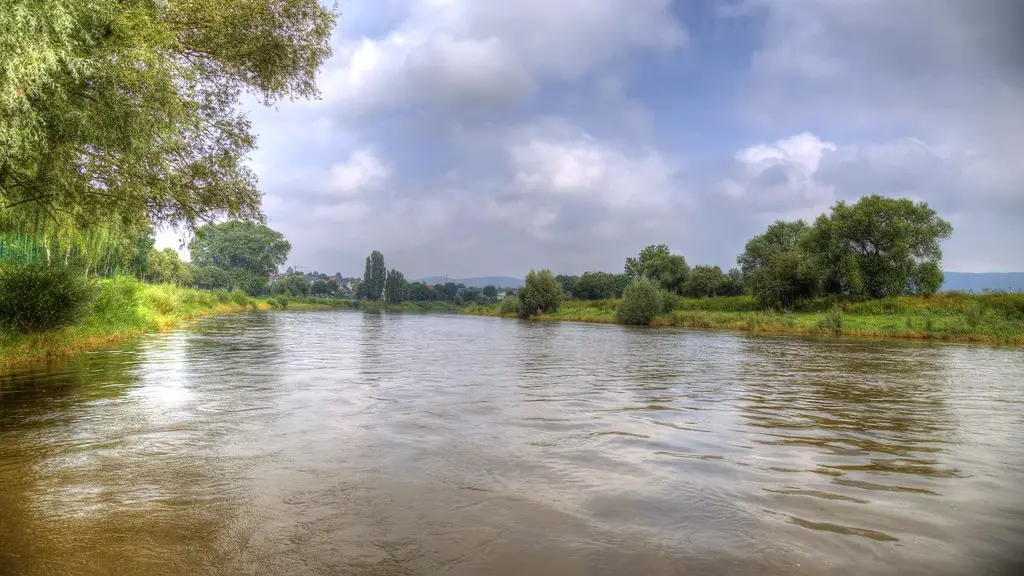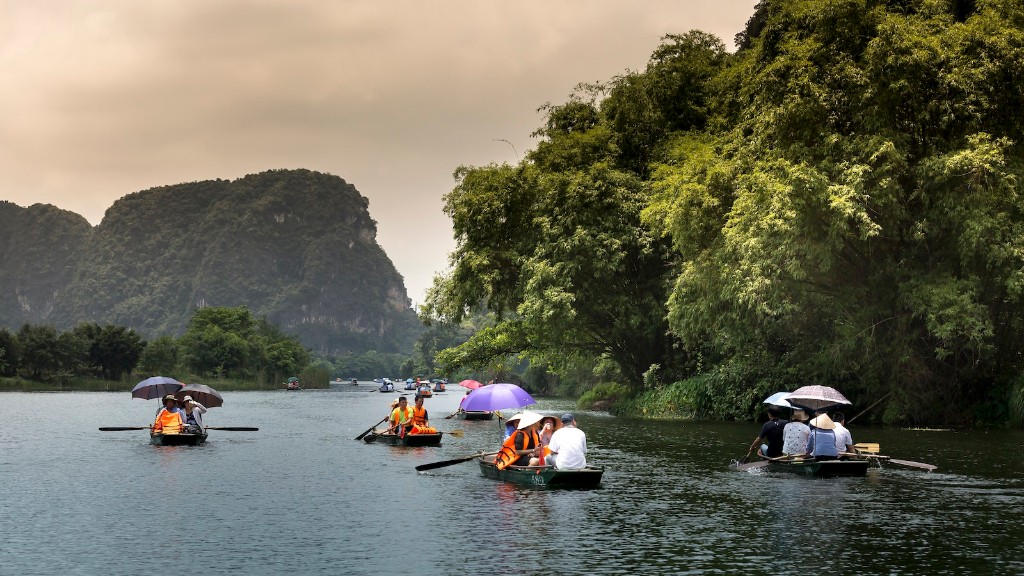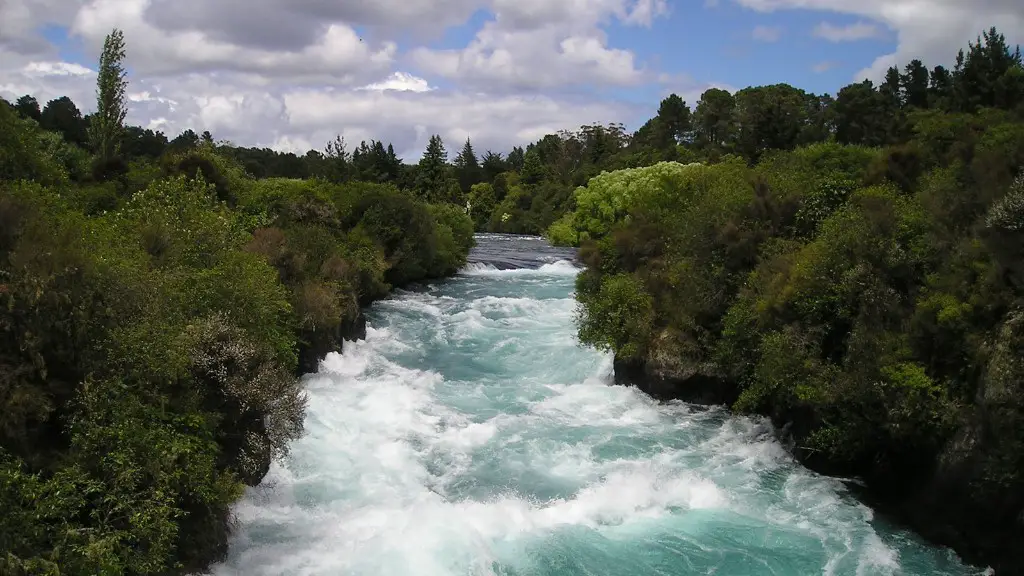History
Barge traffic has existed on the Mississippi River since the early 1800s, when boats first began to traverse its waters to transport goods up and down the river. From the beginning, freight barges played a vital role in the river’s economy, saving money and time over land transportation. With the invention of the steamboat in 1811, barge technology progressed rapidly, and the Mississippi River quickly became a vital artery for commerce in America. The Industrial Revolution further increased barge traffic on the Mississippi River, as well as on many other rivers throughout the country, creating a water-based transportation system for both trade and passenger travel that lasted until the 1950s.
Today, barge traffic is still a major part of the Mississippi River’s economy, transporting billions of tons of cargo each year, including coal, grain, petroleum, chemicals, and other commodities. This activity has been critical in keeping the Mississippi River viable and vital over the centuries, and continues to be so today.
Impact on the Economy & Environment
Barge traffic on the Mississippi River has had a major impact on the U.S. economy. Every year, millions of tons of cargo are transported on the river, which helps to keep businesses afloat and supports the agricultural sector. Barge traffic also benefits communities along the river, providing jobs and helping to sustain local economies.
In addition to its economic contributions, barge traffic also has environmental benefits. Barges produce minimal pollution, making them an eco-friendly alternative to other forms of transportation. Furthermore, barges use much less fuel and emit fewer greenhouse gases than trucks or trains, making them an important part of the fight against climate change.
Safety and Regulations
Barge traffic on the Mississippi River is heavily regulated and subject to stringent safety standards. In order to operate on the river, a barge must be registered, inspected, and certified according to applicable laws, including Maritime Transportation Security Act regulations. Furthermore, barges must have up-to-date navigation charts, alarms, and lifesaving devices, and must adhere to specific speed limits and rules of the road.
In addition, barge operators must follow strict guidelines to ensure the safe and efficient operation of their vessels. This includes the development of comprehensive safety plans and maintenance schedules, as well as the periodic testing and inspection of vessels and their navigational equipment.
The Future of Barge Traffic on the Mississippi
Barge traffic on the Mississippi River is expected to continue to play an important role in the river’s overall economy. While many other forms of transportation have largely replaced barges in recent years, barges continue to be a cost-effective and efficient means of transporting cargo and other goods up and down the river.
In the coming years, experts anticipate that advances in digital technologies, such as autonomous barges, could revolutionize barge traffic on the Mississippi River. This could lead to greater efficiency in terms of cargo transport, as well as improved safety and environmental performance.
The Politics of River Traffic
The politics of river traffic on the Mississippi have long been an area of contention. Many stakeholders, including business owners and politicians, have expressed concerns about the impact of increasing barge traffic on the river’s ecosystem. In recent years, this debate has become increasingly heated, with both sides of the argument accusing the other of attempting to hinder the economic and environmental progress of the region.
Furthermore, the battle over river traffic has been exacerbated by competing interests between the various states and tribes along the river. Each side has its own agenda, making it difficult to reach a consensus on issues such as conservation, water use, and barge traffic regulations.
The River’s Future
Despite the political and environmental challenges facing the Mississippi River, barges continue to play an important role in the life of the region. As technology and regulations continue to evolve, experts hope that barge traffic will continue to prosper, providing a vital economic lifeline for the river and its communities. In the long run, this could lead to an even stronger economy, with new opportunities for businesses and residents to thrive.
Infrastructure Developments
In recent years, infrastructure developments have allowed barge traffic on the Mississippi River to continue and expand. This includes significant improvements to locks and dams, as well as the installation of modern navigational aid systems, which have allowed for a safer, faster, and cost-effective means of transportation. Furthermore, the U.S. Army Corps of Engineers has made a number of investments in the river’s infrastructure, which have helped to make it more efficient and reliable.
These improvements have allowed barges to transport cargo more quickly and safely than ever before. This has not only had a positive economic impact, but also a positive environmental impact, making barge traffic on the Mississippi River a more attractive option for companies looking to reduce their carbon footprint.
Conclusion: The Importance of Mississippi River Barge Traffic
Barge traffic on the Mississippi River continues to be a vital part of the region’s economy and culture. As technology continues to evolve and regulations become more stringent, barge operators must stay up-to-date on the latest developments in order to keep their vessels safe and efficient. The region’s infrastructure must also continue to be maintained and improved in order to keep the river viable for generations to come. In the end, barge traffic on the Mississippi River is an integral part of the area’s history, economy, and culture – and it will remain so for years to come.



